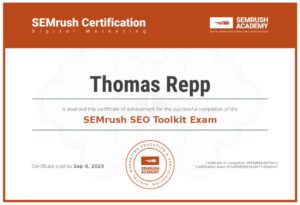Creativity Once Drove the Market ... Does It Still Matter?
 Marketing agencies used to be the gatekeepers of brand storytelling. They shaped the way the world experienced products, injecting personality, emotion, and storytelling into campaigns that made even the most mundane industrial products feel indispensable. Their offices hummed with the energy of designers, copywriters, and strategists ... all working to create the next big thing.
Marketing agencies used to be the gatekeepers of brand storytelling. They shaped the way the world experienced products, injecting personality, emotion, and storytelling into campaigns that made even the most mundane industrial products feel indispensable. Their offices hummed with the energy of designers, copywriters, and strategists ... all working to create the next big thing.
But in B2B industrial marketing, most companies never relied on massive creative agencies to begin with. Instead, they often depended on internal teams, technical experts, and old-school sales tactics. Even so, creativity still played a crucial role, differentiating brands in a sea of nearly identical competitors. Now, with AI encroaching on every aspect of marketing, many are asking: Is creativity dead in the industrial space?
The short answer: NO
But it’s being redefined. And for mid-size industrial companies willing to embrace a creative approach—especially in the age of AI—the opportunity is massive.
The Fall of Traditional Marketing (and the Rise of AI)
In consumer markets, traditional creative agencies are crumbling under the weight of new demands. Budgets are shrinking. Clients want more, faster, and cheaper. The old model ... bloated retainers, slow-moving campaigns, and layers of approvals ... is becoming a relic of the past.
In the industrial sector, the shift has been different but equally transformative. Instead of relying on agencies, companies have increasingly taken marketing in-house, using automation, AI-generated content, and data-driven strategies to execute campaigns faster than ever. But in the rush to embrace AI and automation, something is being lost:
The ability to stand out.
When every company is using the same AI-powered tools to churn out content, when every website starts to sound eerily similar, and when marketing becomes purely a numbers game, the brands that infuse creativity into their B2B messaging will be the ones that win.
Why Creativity Still Matters in Industrial Marketing
1. Creativity Differentiates in a Crowded Market
Most industrial companies are still playing catch-up when it comes to digital marketing. Their competitors are using AI to generate blogs, automate social media posts, and optimize ad campaigns. But AI alone won’t make a company memorable. Creativity ... the ability to craft compelling narratives, present unique perspectives, and engage customers in unexpected ways ... is what sets leaders apart.
2. AI Can’t Replace Human Storytelling
AI is great at producing content quickly, but it lacks the human insight needed to craft a brand story that resonates. Mid-size industrials have a goldmine of real-world experience, success stories, and customer pain points that AI simply can’t replicate in a meaningful way. Companies that use AI to support, rather than replace, human creativity will gain the upper hand.
3. Customer Experience is Still Personal
In B2B industrial marketing, relationships still matter. Decision-makers don’t just buy products; they buy trust, expertise, and a sense of partnership. Creativity in branding, messaging, and engagement strategies helps humanize a company, making it more approachable, trustworthy, and memorable.
4. The Digital Moat Strategy Needs a Creative Foundation
At The Repp Group, we often talk about the importance of building a “digital moat” ... a strategy that makes your brand the most visible, trusted name in your niche. AI-driven SEO, automation, and data analytics play a role, but without a compelling, creative message, the moat is just a dry ditch. A creative approach ensures that your digital presence is not just strong, but magnetic. Inbound marketing at its best ... if you will.
What Comes Next? How Industrial Marketers Can Adapt
The death of traditional marketing agencies doesn’t mean the death of creativity—it just means the game has changed. Here’s how mid-size industrial companies can adapt:
1. Build an In-House Creative Team (or Find the Right Partner. I Just Happen to Know Once)
Instead of relying on outside agencies, many companies are developing lean, highly skilled internal teams that combine AI-driven marketing with strategic creative thinking. For those without the bandwidth, partnering with specialized consultants who understand industrial marketing can be the game-changer.
2. Focus on Brand Storytelling
B2B buyers don’t just want specs and pricing; they want to understand the company behind the product. Industrial marketers should invest in brand storytelling ... case studies, behind-the-scenes content, and messaging that highlights their company’s unique expertise and values.
3. Embrace AI ... But Stay Human
AI is a powerful tool, but it should enhance creativity, not replace it. Companies should use AI for efficiency ... automating repetitive tasks, analyzing data, and optimizing content ... while keeping human insight at the core of their messaging.
4. Experiment, Iterate, and Stay Agile
The industrial market is changing fast, and the old-style rigid marketing strategies will fail. Companies should be willing to test creative ideas ... whether it’s a bold new branding approach, video storytelling, or interactive digital content. Agile marketing, fueled by both AI insights and creative instincts, will be the winning formula.
The Bottom Line
AI is changing the game in B2B industrial marketing, but creativity is still your ace in the deck. As the industry shifts, the companies that invest in creative differentiation will build stronger brands, command greater trust, and ultimately drive more sales.
So, is creativity dead? Not even close. It’s just waiting for the right marketers to bring it back to life.
Want to know more? Go to What We Do or Contact Me in the menu above. Or give me a call at 269-375-0349.
Author:Tom Repp
A passionate marketer attempting to change the way industrial marketers leverage the web as a growth-oriented, lead generation machine. View all posts by Tom Repp




